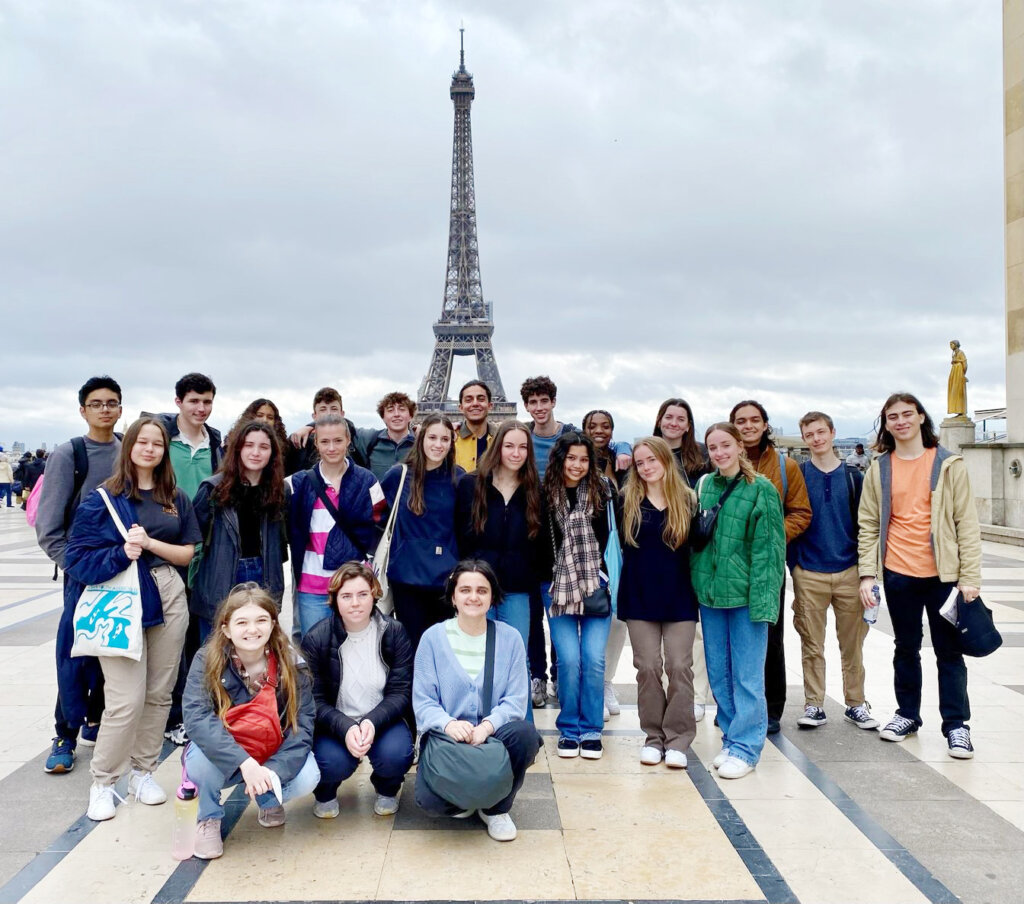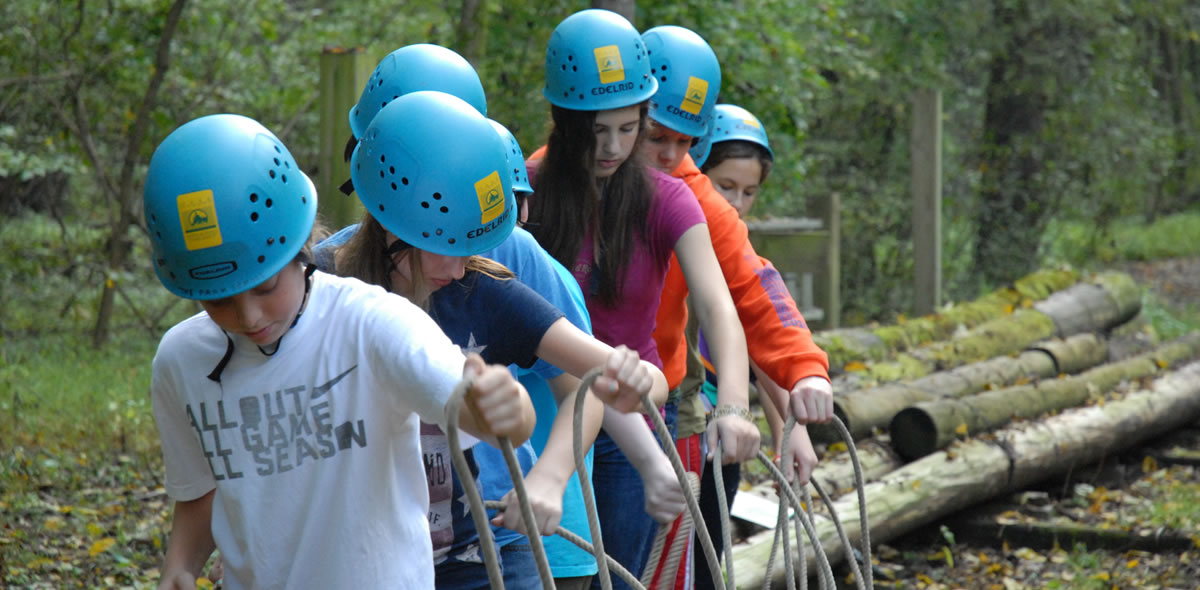History
The Park School history department considers the ultimate goal of historical study at the secondary level to be the formation of those attitudes and skills that enable students to understand the world around them so that they can constructively participate in a democratic society.
We hope to graduate young people who recognize the non-objective nature of information and who take the time to seek out and compare alternative contentions in arriving logically at personal positions concerning the key issues of their world.
The emphasis in course organization is generally on historical problems, and assignments emphasize a discriminating analysis of both primary sources and secondary interpretations. We employ a variety of readings and teaching techniques to stimulate and develop effective self-expression, both written and oral. Basic historical research skills are taught in required courses, culminating in a major research paper each year.
Three years of history are required for graduation; additionally, most students take at least one elective course in history.
Independent Studies can be arranged in the history department for semester credit; every year a small number of students—usually juniors and seniors—seek this opportunity to work independently on a subject of their interest.
Requirements
- Grade 9: Foundations in History
- Grade 10: Modern World History
- Grade 11: United States History
History 9: Foundations in History
Grade 9 • Required
In 9th Grade history, students will pursue a year-long exploration of history as a tool for examining histories local and global. The goal is to provide students with foundations in skills and understandings they can carry into future history classes and learning experiences in the Upper School and beyond. Students develop essential skills like source analysis and crafting arguments. They will also gain exposure to the wide range of ways to communicate findings – from essay-writing to podcasting and documentary-making. The fall semester focuses on an introduction to skills and modes of doing history, which students will apply as they study major turning points in the history of Baltimore and in the world. All of this builds up to students designing and producing their own projects on some aspect of that history for an audience beyond their teacher. In the second semester, students will turn to foundational explorations of parts of the world they will examine on a deeper level in future years.
History 10: Modern World History
Grade 10 • Required
At the heart of study in History 10 is an examination of the modern world and the ways we got to our global present. To that end, students will be asking some essential questions: What have been foundational commercial, political, and technological revolutions in the world between 1400 and the present? How did those revolutions transform the systems of power, ideology, and ecology that shaped the world order? How did different groups reckon with those changes? What lessons are there for understanding the systems that shape our world today? Students will also complete an independent research project, building on the skills they developed in the ninth grade.
History 11: United States History
Grade 11 • Required
This course offers an in-depth look at the history of the United States and the debates and conflicts through which its identities have been hammered out. The class will ask about rights and privileges, structures of power and resistance, laws and their challengers, cultures and ideas, wealth and poverty, and the United States and the global world. Students will continue to hone historical skills and habits of mind, and work will include an independent research project.
A History of Belief: Exploring World Religions
Grades: 10-12
This course will explore major world religions from both historical and philosophical perspectives. Students will consider and compare the complex answers given by various belief systems to life’s most fundamental questions. What is true? What gives life meaning? How should I live? And how do we know? The class will also explore the ways in which each religion is a product of its history. How did it answer the specific needs of the place and time in which it emerged? How did it interact with belief systems? How and why did it change over time? The specific religions examined will be influenced by the interests of the group, but will likely include a balance of nature-based, eastern, and Judaeo-Christian belief systems.
Art History: Recurring Themes
Grades: 10-12
More than ever before, we live in a world of man-made appearance, and whether we are conscious of it or not, what we see affects us. In this course, students will develop visual literacy and learn to recognize how various cultures have expressed and perpetuated many of their most deeply held values through art and architecture. The ultimate question is this: how does art (from painting and architecture to advertising and fashion) influence our own sense of reality and shape our own desires? To approach this question in a manageable way, students will examine three or four major themes that recur throughout art history, such as Sacred Space, The Body, Power & Protest, Gender & Identity, and The Environment. Students will study a broad range of works, comparing the ways artists from different time periods and cultures have responded to each theme. They will discuss, read, and write about art, and plan to take a field trip or two to see some art in person. (Readings will be provided in class.) This course can be taken for arts or history credit.
Case Studies in American Women’s History
Grades: 10-12
“We hold these truths to be self-evident; that all men and women are created equal; that they are endowed by their Creator with certain inalienable rights; that among these are life, liberty, and the pursuit of happiness…” Declaration of Sentiments, Elizabeth Cady Stanton, 1848The United States of America was founded on principles of equality, justice, and freedom. Yet as this nation was built, a patriarchy was born: unequal opportunities were bred, unjust systems were instated, and freedom was accessible only to those who were educated, wealthy, white, and male. By studying the exclusion and participation of women in American economic, political, and social life, students in this class will gain a more complete understanding of those who held America accountable to its founding principles. The course will focus on the evolving role of gender and on the struggles and achievements of American women from the mid-nineteenth to late twentieth century. Students will not only examine power relations between men and women, but they will also gain understanding of the power relations between women of different races, class, cultures, and sexual orientation. Through a multicultural approach, the class will consider case studies of women undermining the patriarchy with the aim of challenging old narratives of American history.
Elections, Past and Present
Grades: 10-12
“There is only one redeeming thing about this whole election. It will be over at sundown, and let everybody pray that it’s not a tie, for we couldn’t go through with this thing again.” – Will RogersIf you haven’t noticed, there’s an election campaign going on. While it may seem like a saga without an end, there will in fact be a presidential election this fall. What better time to look into the history of presidential elections in modern U.S. history? Students in this class will study the factors in elections, including media, interest groups, polling, and the language of politics. They will study classic journalistic accounts of campaigns, including books and documentary films.
Revolutionary Latin America
Grades: 10-12
The goals of this course are twofold: first, students will endeavor to understand why and how people seek structural change, exploring factors that facilitate or inhibit success; second, they will acquaint themselves deeply with the 20th-century Latin American context, centering a region that is often overlooked and under-studied in high school history programs. To do so, the class will study five distinct case studies (Brazil, Mexico, Bolivia, Cuba, and Chile) and consider the following questions: Why do people revolt? Why, specifically, did Latin Americans revolt across the continent in the 20th century? Which methods have been most successful in helping revolutionaries achieve their goals? What pre-conditions existed across Latin America played a role in these transformations? What were people reacting against? What role have outsiders – particularly the U.S. – played in these Latin American histories? What are some side effects of reformist or revolutionary efforts?
The Holocaust
Grades: 10-12
This course will examine one of the defining events of the twentieth century: the genocide of European Jews between 1933 and 1945. The goal is to understand how it took place and its short-term and long-term legacies within and beyond Europe after the war. In addition to understanding Nazi theory and policy, students will explore victims’ experiences and acts of resistance through diaries, songs, community chronicles, memoirs, and other primary sources. The class will also tackle some of the questions that still challenge the understanding of the Holocaust and its legacies today.
The Vietnam Wars
Grades: 10-12
The struggle for Vietnam occupies a central place in the history of the 20th century. How did it happen? Why were the Vietnamese at war with each other? Why did France, China, and the U.S. involve themselves? Why did so many people outside of Vietnam care? Why did it drag on for so many decades? Why does it continue to loom so large in American memory and foreign policy today? This seminar-style course draws on a rich variety of sources and perspectives to explore these questions. Specific topics include: the impact of French colonialism on traditional Vietnamese society; the role of World War II in the rise of nationalism and communism in Vietnam; the motives, stages, and strategies of American intervention in Vietnam; the experiences of the Vietnamese; the rise of the anti-war movement in the U.S.; and the lessons and legacies of the conflict for both Vietnam and the U.S.
Current Events
Grades: 10-12
In this semester-long elective course, students will work to understand world events as they arise, contextualizing them within their own political and social histories. The content of this course will remain highly flexible depending on what makes the news over the course of the year. Regardless, all students will leave this class with the ability to find information from reliable sources, verify it, recognize distortions, and create a more informed and complex version of reality. There will also be opportunities to practice journalistic writing and explore journalism as an industry.
Early West African Perspectives
Grades: 10-12
This course will examine the rise of kingdoms and cultures in West Africa from early humanity to the first encounters with European invaders. Drawing upon a rich variety of sources – including written accounts, oral tradition, material culture, and historical fiction – it will explore power and cultural legacies from insider lenses. While highlighting the splendor and greatness of these often-overlooked societies and empires, the course will also necessitate ongoing conversations about who, historically, has controlled African narratives and how we, as outsider-historians, can center West African voices as we endeavor to understand these histories. Rather than situating colonization as an inevitable future, students will let their sources speak for themselves as they become acquainted with the wealth, power, and the diversity of cultures interacting in this region during the “pre-colonial” period.
History of the Modern Middle East
Grades 10-12
This course will examine the transformations that have taken place in Southwest Asia from the rule of the Ottoman Empire to the aftermath of the Arab Spring. Central themes will be influenced by student interest, but will likely include an introduction to Middle Eastern art history, experiences of and reactions to colonialism, experiments in government, successful and unsuccessful revolutions, conflicting ideas of justice, modernization and its many definitions, nation-states and their alternatives, and the changing and overlapping identities which have united and divided groups in the region.
Never Again: Legacies and Lessons of the Holocaust (1945–Present)
Grades: 10-12
This course explores some of the most notable epidemics in world history from the Black Death in the Middle Ages to the COVID-19 outbreak in 2020. Humanity and epidemic disease have shared a long and intimate history. The central goal with these case studies is to understand those links between societal change and disease. Topics include the origins of epidemics; how warfare, commerce, and imperialism have shaped disease and vice versa; and how race, class, religion, and political context have informed the ways societies have dealt with (or not dealt with) disease. Students will also use the materials in this course to reflect critically on how they, themselves, explain changes in health over time and across space.
Plagues and Peoples in World History
Grades: 10-12
This course explores some of the most notable epidemics in world history from the Black Death in the Middle Ages to the COVID-19 outbreak in 2020. Humanity and epidemic disease have shared a long and intimate history. The central goal with these case studies is to understand those links between societal change and disease. Topics include the origins of epidemics; how warfare, commerce, and imperialism have shaped disease and vice versa; and how race, class, religion, and political context have informed the ways societies have dealt with (or not dealt with) disease. Students will also use the materials in this course to reflect critically on how they, themselves, explain changes in health over time and across space.
Race and Racism in Global Context
Grades: 10-12
What is race? What is racism? How and where did the concept of race emerge? How have understandings of what race means changed over time and space? How do the forms and expressions of racism affect people’s lived experiences? After investigating the driving forces, machinery, and consequences of racism in different parts of the modern world, students will study and ultimately advocate for various paths to liberation. Specific topics include the misuse of science (from craniometry to DNA ancestry testing) in racial classification; affirmative action in India and Brazil; efforts to secure reparations for the translatlantic slave trade in the Caribbean and the Indian residential school system in Canada; the colonial legacy of colorism in beauty standards in Asia; and contests over memorialization, from Richmond’s Monument Avenue to #RhodesMustFall in South Africa.





